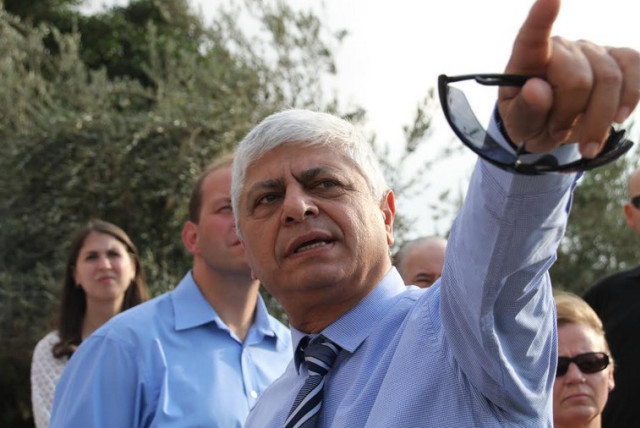Italy opposes Israeli ‘settlers’ even though it has its own - opinion

Israel’s historical, legal, and religious claims to the area where Ma’aleh Adumim is situated are much older, and stronger than Italy’s claims to Campione or Amedeo Guillet.
Italy reportedly has complained about the choice of Benny Kashriel as Israel’s next ambassador to Rome, because he has served as mayor of Ma’aleh Adumim, which the Italians consider an illegal “settlement.”
Ma’aleh Adumim, with its 40,000 residents, is just seven kilometers from the municipal boundary of Jerusalem. It is widely assumed that it will be physically connected to the capital in the near future. For most Israelis, the idea of characterizing Ma’aleh Adumim as a “settlement,” conjuring up images of trailers on a remote hilltop, is laughable.
And yet, some of Italy’s own territorial acquisitions could be described that way.
Rome occupies territory
The islands of Lampedusa and Lampione, which are closer to North Africa than to Italy, are nonetheless occupied by Rome. Over the centuries, various imperialists have ruled the two islands, including the Barbary pirates, the Spanish, the British, and, most recently, the Italians. They have no particular right to the territory, other than the “right” of might.
In recent years, the 6,000 residents of Lampedusa have been joined by tens of thousands of African migrants. Does the local population want Lampedusa, which is arguably an African island, to continue to be part of Italy? Should they have the right to vote on whether their majority-Black island should be governed by white Europeans? The Italian occupation regime, which points an accusing finger at Israel, does not appear to be interested in granting the Lampedusans self-determination.
There are also Italian “settlements” in a number of other countries. Within the borders of Switzerland, for example, there is an Italian enclave, Campione d’Italia. Historically it was just called “Campione,” but fascist dictator Benito Mussolini added “d’Italia” to assert his imperialist claim to the territory. Several thousand Italian citizens currently reside there.
Not all the Swiss are happy about the Italian “settlers” in their midst. When Campione’s casino went bankrupt in 2018, Swiss creditors were left with millions of dollars in unpaid debts.
Italy also has manned outposts (for scientific research) in Kenya, Antarctica, and the Norwegian-occupied part of the Arctic Circle. In addition, the Italians have a military base called Amedeo Guillet, with some 300 personnel, in Djibouti, an African country that the Italians illegally occupied from 1889-1941.
The Italian government has described the Amedeo Guillet base as “a permanent outpost in an area of enormous strategic importance.” Israel might say the same thing about Ma’aleh Adumim, especially considering its close proximity to Jerusalem.
Israel’s historical, legal, and religious claims to the area where Ma’aleh Adumim is situated are much older, and stronger than Italy’s claims to Campione or Amedeo Guillet. Ambassador Kashriel may have an opportunity to remind Rome of that fact when he takes up his new position.
The writer is founding director of The David S. Wyman Institute for Holocaust Studies and author of more than 20 books about Jewish history and the Holocaust. His latest is America and the Holocaust: A Documentary History, published by the Jewish Publication Society and University of Nebraska Press.
Jerusalem Post Store
`; document.getElementById("linkPremium").innerHTML = cont; var divWithLink = document.getElementById("premium-link"); if (divWithLink !== null && divWithLink !== 'undefined') { divWithLink.style.border = "solid 1px #cb0f3e"; divWithLink.style.textAlign = "center"; divWithLink.style.marginBottom = "15px"; divWithLink.style.marginTop = "15px"; divWithLink.style.width = "100%"; divWithLink.style.backgroundColor = "#122952"; divWithLink.style.color = "#ffffff"; divWithLink.style.lineHeight = "1.5"; } } (function (v, i) { });

